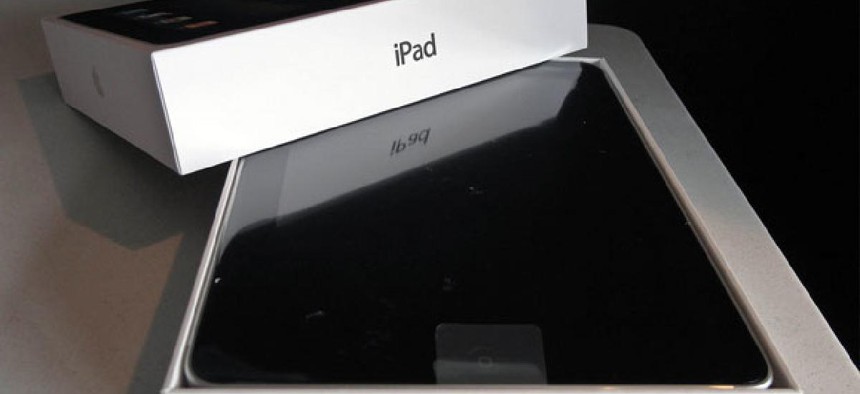
Flickr user syume
Doctors blazed the BYOD path at Veterans Affairs
VA had to scramble to keep up with tech-savvy medical staff.
In November, 2010, Roger Baker, the chief information officer at the Veterans Affairs Department, had his first taste of what eventually became the bring-your-own-device revolution in the federal government.
Clever orthopedic residents at the Chicago VA hospital had developed their own calendar application hosted on Yahoo.com that contained information on more than 1,000 patients, including names, the last four Social Security number digits and scheduled surgeries. They accessed this information from handheld gadgets. Security was a joke -- four residents shared the Yahoo account using the same password, and in turn passed that password on to other residents.
Baker also discovered eight other hospitals had turned to cloud-based Google Docs, which feature online spreadsheets, word processing programs and presentation software -- to store patient information. He quickly ordered a shut-down of the Yahoo and Google accounts for security reasons. But he also realized he and the VA needed to keep pace with ground-up innovation.
Both Yahoo and Google provide great tools, and Baker said his job was to figure out how to support the use of non-traditional applications within the secure VA information technology infrastructure and stay ahead of its 134,000 medical employees.
This includes the pioneering use of mobile device management software to manage tablets and smart phones, including tools that will allow VA to wipe insecure and non-compliant software off the gadgets, a nuclear option Baker said he had no reservations about using.
Since 2010, the department has aggressively pursued a BYOD path. In June 2012, Baker predicted that VA had probably made its last desktop PC purchase -- within five to six years, the department would no longer provide employees with hardware, he speculated.
Department officials may have to accelerate that schedule to keep up with its tech-savvy medical staff -- close to 80 percent of clinicians in the country already use smartphones or tablets.
NEXT STORY: NNSA chief to step down







